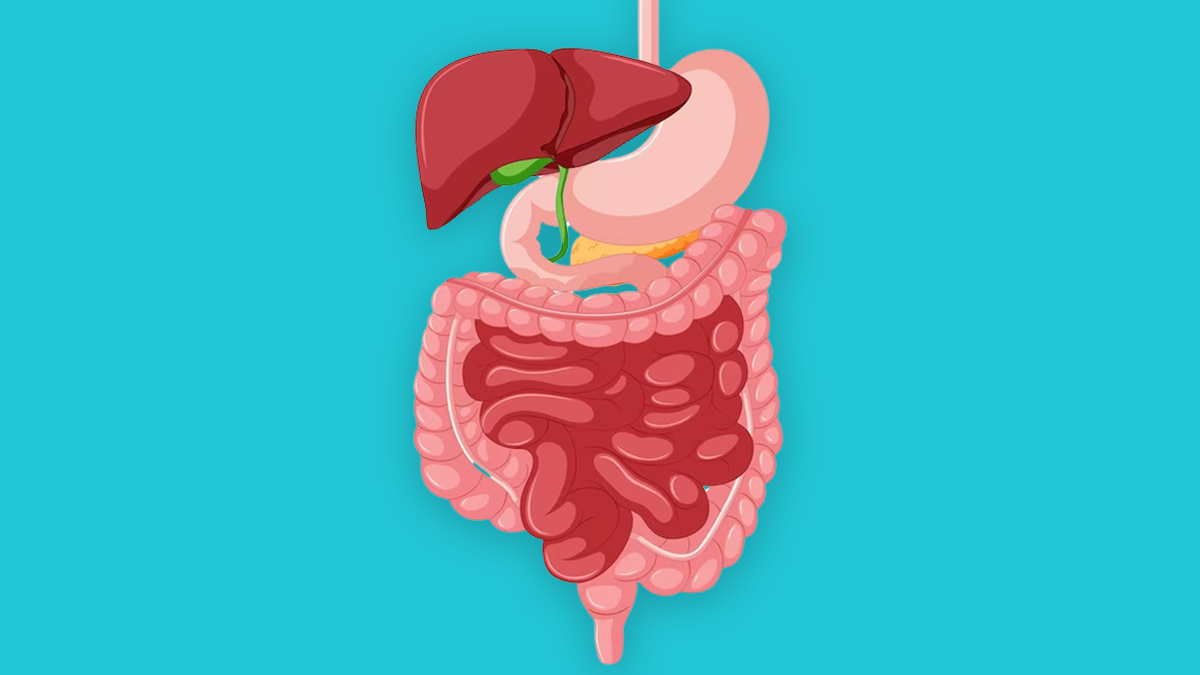
In today's busy world, feeling a little ‘off’ is waved off as just another aspect of being part of the modern age. Often termed as brain fog, the modern-day idea of success is synonymous with feeling a brain block every once in a while. However, what if that mental fogginess and difficulty in focusing are just not a fleeting thing? What if they're a quiet, but serious, alarm call for something more serious, such as the health of your gut? In an exclusive interaction with the editorial team of Onlymyhealth, Dr Bhumesh Tyagi, Consultant, General Medicine and Physician, Shardacare, Health City, Noida, pointed out the complex relationship between our brain and our gut, commonly referred to as the gut-brain axis.
Table of Content:-
The gut-brain axis is a two-way road of communication that implies, what goes on in your head can impact your digestion, and vice versa. Let’s understand it better through the lens of an expert.
What Is The Brain-Gut Axis
Dr Tyagi highlights that before diving into the potential downward spiral, it's crucial to understand how deeply interconnected your brain and gut truly are. This connection involves:
- The Vagus Nerve: A major nerve that acts as a superhighway, transmitting signals between your brain and your digestive tract.
- Neurotransmitters: Chemical messengers like serotonin (much of which is produced in the gut) play a role in mood, sleep, and gut function.
- Immune System: Much of your immune system lives in your gut, and inflammation can affect both brain and gut function.
- Microbiome: The trillions of bacteria, fungi, and viruses that live in your gut deeply affect many aspects of body function, from brain chemistry to gut integrity.
With this intricate interplay, it makes sense that extensive brain fog, commonly a sign of intrinsic stress, inflammation, or neurological imbalance, could very well trigger a chain reaction with devastating effects on gut health.

Also Read: What To Look For In A Footwear To Ease Aches And Pains
How Brain Fog Could Lead the Way to Gut Issues
Though the direct cause-and-effect link is still being unravelled, here's how repeated brain fog can lead to an erosion of gut health:
1. Increased Stress Response
Brain fog is frequently an expression of long-term stress. When your brain is perpetually under tension, your body is kept in a fight-or-flight mode. That ongoing stress response redirects blood away from the digestive tract, suppresses digestive enzymes, and can change gut motility, all of which impair healthy digestion.
2. Poor Lifestyle Options
When you're suffering from brain fog, your capacity to make healthy choices is usually compromised. You may find yourself more likely to grab convenience foods, processed snacks, and sugary beverages, all of which are bad for a healthy gut microbiome.
3. Disturbed Sleep Patterns
Brain fog and disturbed sleep tend to go together. Failure to get restorative sleep has been shown to disturb the circadian rhythm of your gut, which can cause dysbiosis (dysbalance of gut bacteria) and elevated gut permeability (leaky gut).
4. Decreased Nutrient Absorption
When your brain is not firing on all cylinders, you may fail to appreciate the value of a nutrient-dense diet, or even if you are consuming a healthful diet, the long-term stress involved with brain fog can compromise your body's ability to adequately digest and absorb the necessary nutrients for maintaining and repairing your gut.
5. Inflammation Loop
Brain fog can also be an indication of healthy inflammation in the body. The persistent inflammation, if not arrested, will destroy the lining of the intestine, causing enhanced permeability and further perpetuating a cycle of inflammation in the body, including the gut.

Are These Warning Signs Destroying Your Gut?
It's time to listen to your body's cues. If you're always plagued by brain fog, watch for these accompanying symptoms that could signal your gut health is compromised as well:
1. Persistent Stomach Discomfort
Aside from the occasional indigestion, are you regularly plagued by bloating, gas, stomach pain, constipation, or diarrhoea? These are all tell-tale indicators of an unhappy gut.
2. Changes in Bowel Habits
Substantial changes in the frequency, consistency, or ease of your bowel movements might be indicative of gut dysbiosis or inflammation.
3. Food Sensitivities or Intolerances
Coming down with sensitivities to foods you used to love, or a rise in negative reactions to specific foods, may show a damaged gut lining.
4. Unexplained Weight Changes
Both unexplained weight gain and weight loss challenges can be attributed to an out-of-balance gut microbiome.
5. Skin problems
Acne, eczema, or psoriasis usually have imbalances within the gut.
6. Fatigue Despite Rest
Fatigue itself, caused by brain fog, can be problematic, but chronic fatigue that fails to respond to rest, particularly when combined with gastrointestinal problems, is a warning sign.
7. Mood Fluctuations or Aggravated Anxiety/Depression
With the connection between the gut and brain, a malfunctioning gut can impair neurotransmitter synthesis, which in turn worsens mood disorders.
8. Frequent Infections or Compromised Immunity
Much of your immune system lives in your gut. If your gut is compromised, you may find yourself getting sick more frequently.
Bottomline
Blowing off chronic brain fog may be like blowing off a smoke alarm that you may be warning yourself of a larger, more serious problem brewing in your body. By learning about the brain fog's ability to affect your gut and being alert to the signs of danger, you can be proactive in caring for both your brain and your digestive system and end up with a livelier, healthier you.
Also watch this video
How we keep this article up to date:
We work with experts and keep a close eye on the latest in health and wellness. Whenever there is a new research or helpful information, we update our articles with accurate and useful advice.
Current Version